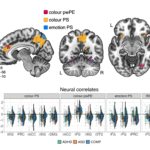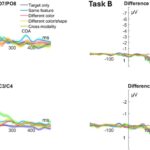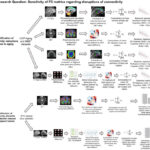On June 12 in Mainz, Dr. Z. Shi delivered a lecture at Mainz University on how we perceive time. During his talk, titled “Understanding time: sequential dependence, contextual modulation, and neural correlates,” he presented his latest research in the field.
Dr. Shi’s host, Prof. Daniel Oberfeld-Twistel, introduced the session, and Dr. Shi went on to discuss how our perception of time is heavily influenced by the context in which it occurs. He explained that, from a Bayesian point of view, our subjective biases are actually an integration of prior knowledge with sensory information, which helps improve the accuracy of our estimations. Dr. Shi also shared insights from recent studies showing how the statistical characteristics of stimulus sets—like their spacing, frequency, and how unpredictable they are (volatility) — affect how well we judge time. He highlighted key findings from EEG and fMRI scans that back up these ideas, noting the importance of brain components like the Contingent Negative Variation (CNV) and the Late Positive Component of Timing (LPCt), and the role of the hippocampus in timing tasks.
Prof. Oberfeld-Twistel took the opportunity to discuss his own research on estimating the time until a collision occurs, so called time-to-collision (TTC), which is crucial for understanding vehicle and object interactions. They explored how the Bayesian inference framework can help interpret biases observed in these time-to-collision studies. Additionally, Prof. Oberfeld-Twistel gave a lab tour on their state-of-the-art 3D sound system in a virtual reality setup.





